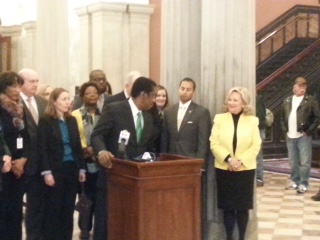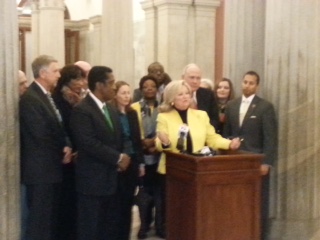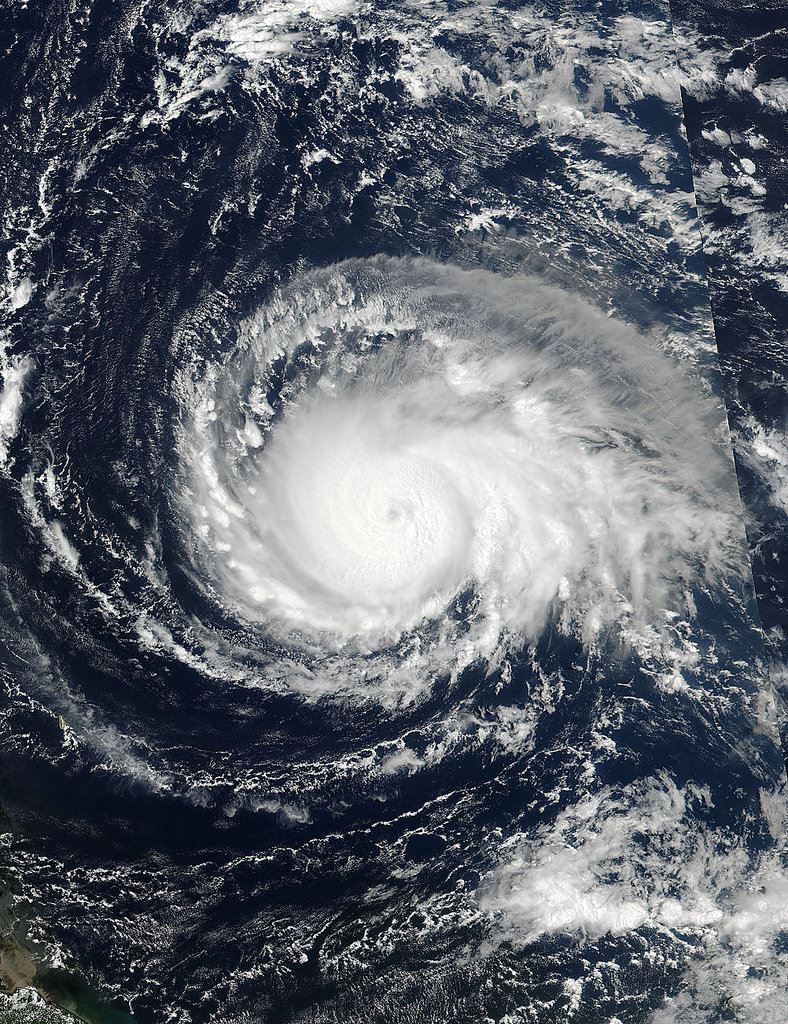SCASP at the State House Again! June 1, 2015
As some of you may know, a group of SCASP representatives met with Molly Spearman, courtesy of the efforts of Sandra Callaham. At the meeting, we discussed a number of issues pertaining to school psychology. While there, Ms. Spearman suggested that we testify before the Task Force on Equity in Education. The Task Force is an outgrowth of a 20-year-old lawsuit filed by 38 or so primarily rural, high-poverty districts, alleging that S.C.'s funding system for education is inequitable. Using a variety of sources, we compiled written testimony to share with the group. Additionally, Jim Harvey represented SCASP and gave oral testimony. Susan Beck and Sarah Bassin were present as well.
Some of the written testimony presented:
Monday, June 1, 2015
Honorable Task Force Members,
The South Carolina Association of School Psychologists is honored to testify to you today on the behalf of the mental health needs of children, particularly for students living in poverty, and the role that school psychology may play in improving their chance for success.
In a recent training, Virgie Chambers, Deputy Superintendent Operations and Support within the South Carolina Department of Education discussed the Profile of the 21st Century Graduate. She explained that, based upon this profile, which the South Carolina Department of Education has adopted, the goal of education is to prepare students for success in citizenship, career, and college. To this end, one of the purposes of schools is to provide a community of support to foster the development of the whole child.
When we talk about the needs of the whole child and those qualities needed for success in school and in life, all of us would quickly name good health, hard work, and academic knowledge. Equally important, but often neglected, is student mental health. As cited by Dr. Steven Brock in his welcome to participants in the Regional Meetings of the National Association of School Psychologists:
- · Over 10% of high school dropouts are attributed to mental illness (Breslau et al, 2008);
- · Approximately half of students 14 years and older with a mental illness drop out of high school (U.S. Department of Education, 2001);
- · 50% of mental disorders make an appearance by age 14 (Kessler et al, 2005);
- · Approximately 75% to 80% of children and youth in need of mental health services do not receive them because existing services in the community are inadequate (Kataoka, Zang, and Wells, 2002); and
- · Of those who do receive assistance, the vast majority (70% to 80%) receive mental health services in schools....
The complete written testimony will be available with this link.
Thank you to all the school psychologists and SCASP members who helped to compile the information! For those of you that want to see the testimony you can view from the state house page.
SCASP at the State House
A press conference was held at the South Carolina Capitol Building on Tuesday, January 13th to announce the release of the findings of the South Carolina Safe Schools Task Force. The final report is available at http://www.scstatehouse.gov/committeeinfo/SchoolSafetyTaskForce/SchoolSafetyTaskForce.php. Representative Jerry Govan (Chairperson of the Task Force) introduced the report. Senator Wes Hayes (Vice-Chairperson of the Task Force) and Representative Rita Allison (Chairperson of the House Education and Public Works Committee) followed. Lisa Lipscomb (SCASP president and member of the Task Force), Jim Harvey and Sarah Bassin (SCASP legislative committee co-chairpersons) were present, along with representatives from other mental health, education, and school safety groups across the state. The report specifically references school psychologists in its list of school-based mental health providers. It urges collaboration between mental health providers and school safety personnel (such as school resource officers), an inspection of provider ratios, and careful planning for prevention, intervention, and crisis management. Be on the lookout for more information on the webpage, social media, and the SCASP newsletter.





.jpg)



